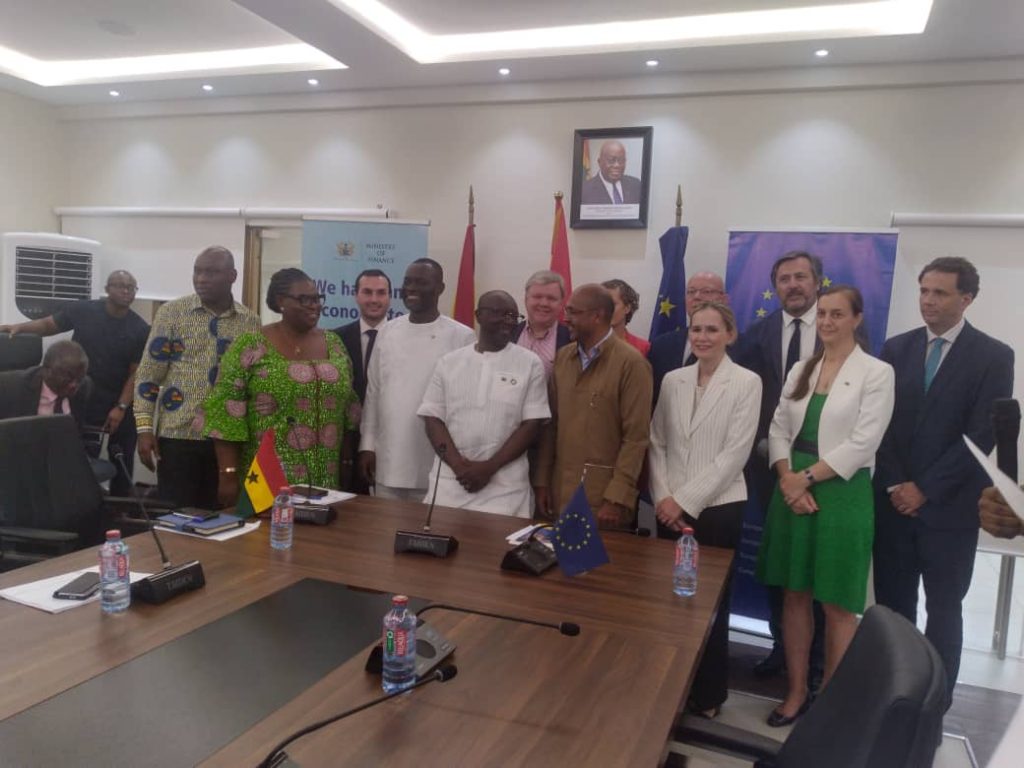By Morkporkpor Anku
Accra, Oct. 31, GNA – The European Union (EU) has signed a 42-million euro Financing Agreements with Ghana aimed at promoting sustainable development, fostering economic growth and strengthening key sectors crucial for the EU-Ghana partnership.
The two Financing Agreements open a new era of collaboration and progress between the two parties and will focus on green transition for agribusiness, sound public financial management and private sector development.
The agribusiness component will support the sustainable development of four value chains like shea, soybean, vegetables, and beekeeping.
It will also support sustainable cocoa production and actions to prevent deforestation and promote reforestation, including support for future compliance with the EU Deforestation Regulation and the Forest Law Enforcement Governance and Trade Voluntary Partnership Agreement (FLEGT).
By investing in agribusiness, the EU and Ghana seek to lift smallholder farmers out of poverty, create jobs, change productivity and improve market access.
This approach will boost agriculture product competitiveness, drive economic growth, and promote a sustainable and inclusive agriculture sector, both domestically and globally.

The other component recognizes the paramount importance of the private sector in the green and digital transition.
Within it, the EU will support access to innovative, green finance for Micro, Small and Medium Enterprises (MSMEs), the regulatory space and business ecosystem for digital, green, inclusive business and improving the entrepreneurs digital and green skills and fostering connections between academic and industrial worlds.
It will also promote sound public financial management for ensuring stability, transparency, and accountability. The implementation of the agreement will improve gender and green responsiveness, transparency, and accountability, including social demand-side accountability. of public finance management in Ghana.
It will reinforce audit and procurement functions and will improve citizens’ perception of the institutions in charge, and this will help foster fiscal discipline and increase investors’ confidence.
Mr Ken Ofori Atta, the Minister of Finance, expressed his gratitude for the partnership and highlighted the mutual benefits that it would bring to both countries.
He said the partnership was a testament of the long-standing relationship and the agreement had come at an opportune time, where the Ghanaian economy was bouncing back.
The Minister said the government was committed to ensuring that the resources were well coordinated and deployed for development.
He said, “This agreement with the EU reflects our shared commitment to sustainable development and economic progress we will pave the way for a double digital and green transition about the private sector.”
This will include the agribusiness sector and strengthen our financial management systems.
He said the partnership would bring numerous opportunities for the people and help the country achieve its sustainable development goals.
Mr Irchad Razaaly, the EU Ambassador to Ghana, said, “Together, these areas represent a comprehensive approach to sustainable development that would impact not only Ghana but also serve as a catalyst for the implementation of the EU’s Global Gateway Strategy.
He said the strategy sought smart clean and digital investments and cooperation with its partner countries.
He said the agreements signed was a testament to the strong partnership and shared commitment between the EU and Ghana.
GNA